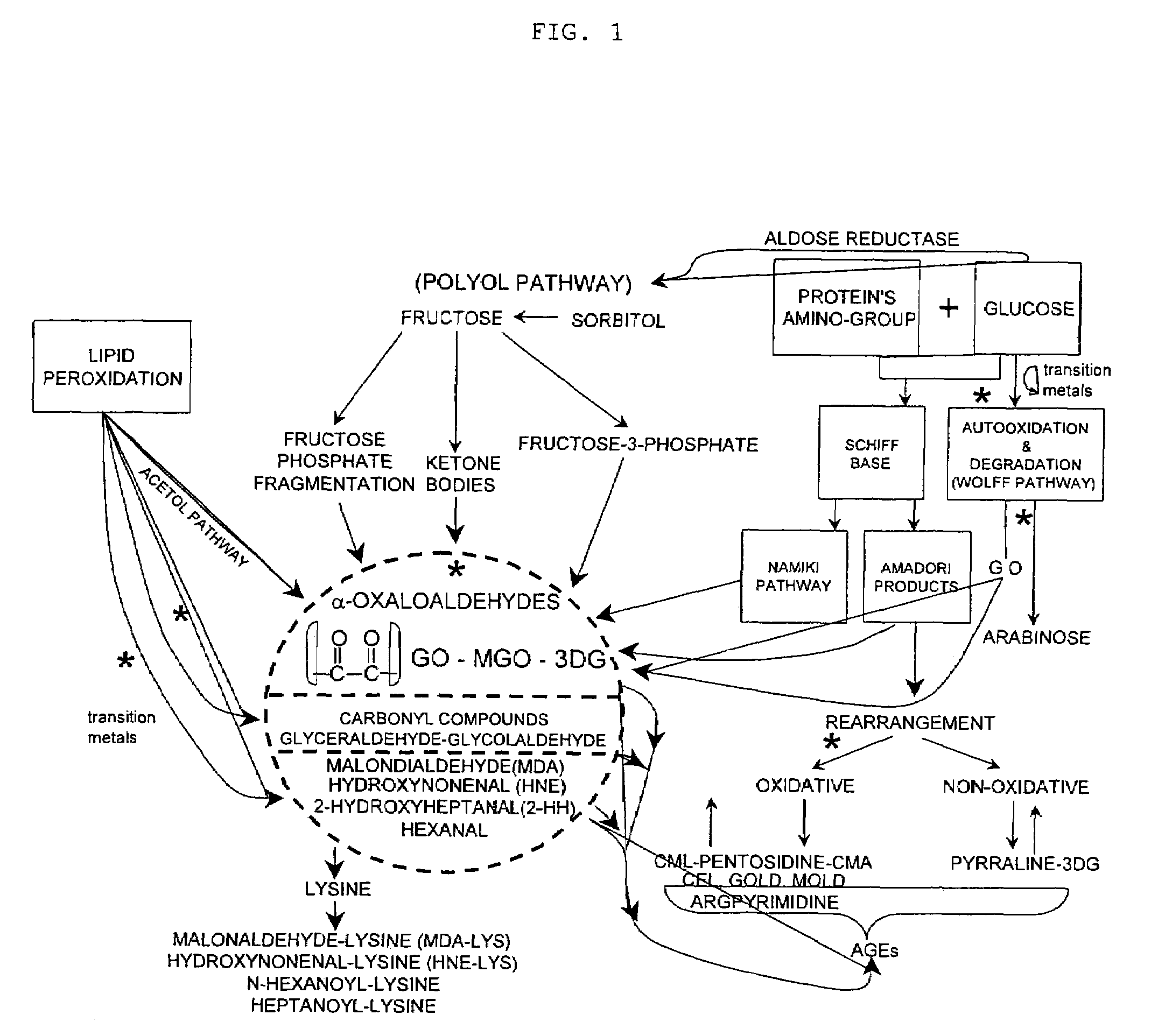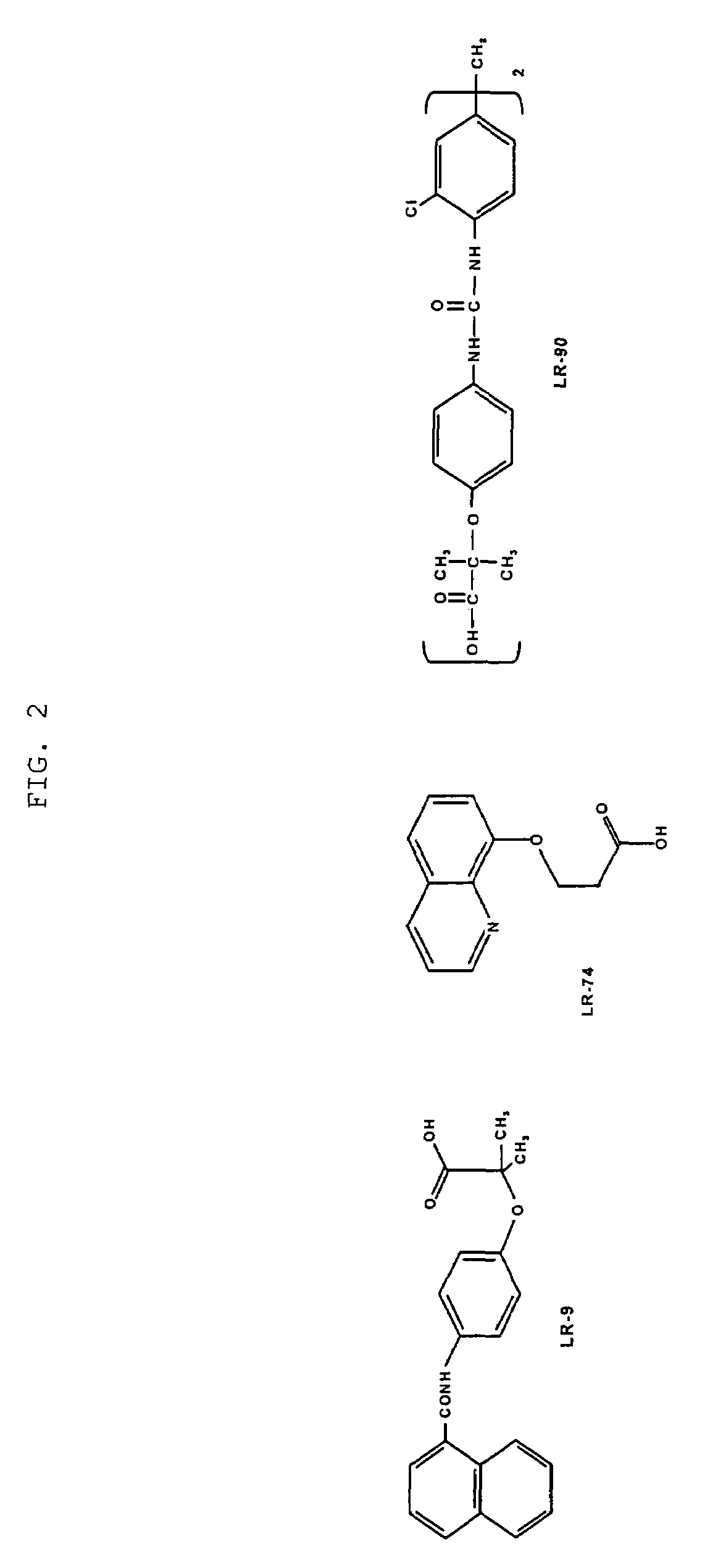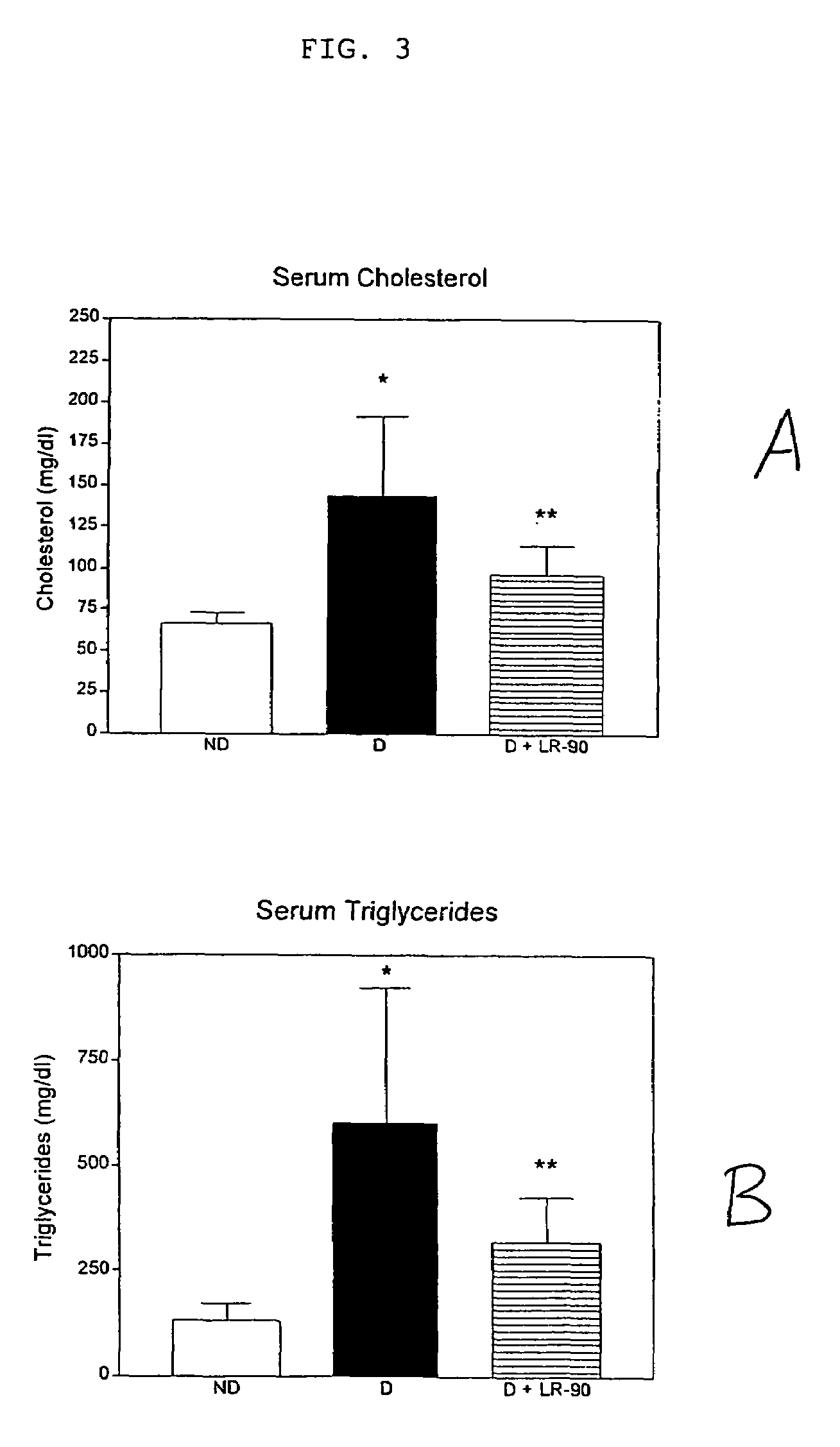Methods of lowering lipid levels in a mammal
a technology of lipid levels and mammals, applied in the field of biomedical sciences, can solve the problems of severe consequences, complicated interpretation and analysis of experimental data, etc., and achieve the effect of reducing the increased concentration of triglycerides and cholesterol and preventing complications
- Summary
- Abstract
- Description
- Claims
- Application Information
AI Technical Summary
Benefits of technology
Problems solved by technology
Method used
Image
Examples
example 1
Treatment of Diabetic and Control Rats
[0180]Male Sprague-Dawley rats (about 175 to 200 g) were adapted for one week prior to treatment, then rendered diabetic by intra-peritoneal injection of STZ (65 mg / kg in citrate buffer, pH 4.5) after an overnight fast. Control (non-diabetic) animals were injected with the buffer only. Diabetes was confirmed by measuring the plasma glucose concentrations 7 days after Streptozotocin (STZ)-injection. Only animals with a plasma glucose concentration greater than 20 mmol were classified as diabetic and used in the study. These diabetic rats were divided randomly into an untreated diabetic control group and a diabetic treatment group. The treatment group received an LR compound at 50 mg / l in their drinking water throughout the duration of the study (32 weeks for LR-90; 30 weeks for LR-9 and LR-74). All animals were housed individually and were given free access to food and water.
[0181]Blood (from the tail vein) and urine samples were collected from r...
example 2
Effects on Lipid Metabolism
[0187]Diabetic rats showed elevated levels of both total plasma / serum triglycerides and cholesterol compared with non-diabetic rats (p<0.001). See FIG. 3. Diabetic rats treated with any of the LR compounds showed significant reduction in both triglyceride and cholesterol concentrations. LR-90 reduced serum triglycerides and serum cholesterol by 50% towards levels of non-diabetic animals (FIG. 3). Similarly, plasma triglycerides and cholesterol levels of diabetic rats were also reduced by more than 60% and 50%, respectively by both LR-9 and LR-74 (FIG. 4).
example 3
Effects on Renal Function
[0188]Urinary albumin, plasma creatinine concentration, and urinary albumin / creatine ratio (UA / Cr) were used as indicators of renal function. Compared with non-diabetic control rats, urinary albumin excretion, plasma creatine concentration and UA / Cr increased significantly in diabetic animals. See Tables III and IV. Treatment of diabetic rats with the LR compounds inhibited the rise in urinary albumin excretion and UA / Cr, with about a 50% reduction in concentration compared to untreated diabetics rats. In addition, the elevated plasma creatinine concentrations observed in diabetic animals were significantly decreased by almost 50% with treatment of either LR-9, LR-74 or LR-90.
[0189]
TABLE IIIEffects of LR-90 on Renal Function Parametersin STZ-diabetic Rats.UrinaryPlasmaUrinaryAlbumin / CreatineAlbuminCreatineGroup(mg / dl)(mg / 24 hr)RatioNDa0.46 ± 0.07 7.6 ± 0.80.49 ± 0.24ND + LR-900.58 ± 0.07 8.9 ± 1.50.57 ± 0.16Da2.94 ± 0.90b37.5 ± 8.4b3.32 ± 1.37bD + LR-901.50 ...
PUM
| Property | Measurement | Unit |
|---|---|---|
| pH | aaaaa | aaaaa |
| thickness | aaaaa | aaaaa |
| thickness | aaaaa | aaaaa |
Abstract
Description
Claims
Application Information
 Login to View More
Login to View More - R&D
- Intellectual Property
- Life Sciences
- Materials
- Tech Scout
- Unparalleled Data Quality
- Higher Quality Content
- 60% Fewer Hallucinations
Browse by: Latest US Patents, China's latest patents, Technical Efficacy Thesaurus, Application Domain, Technology Topic, Popular Technical Reports.
© 2025 PatSnap. All rights reserved.Legal|Privacy policy|Modern Slavery Act Transparency Statement|Sitemap|About US| Contact US: help@patsnap.com



